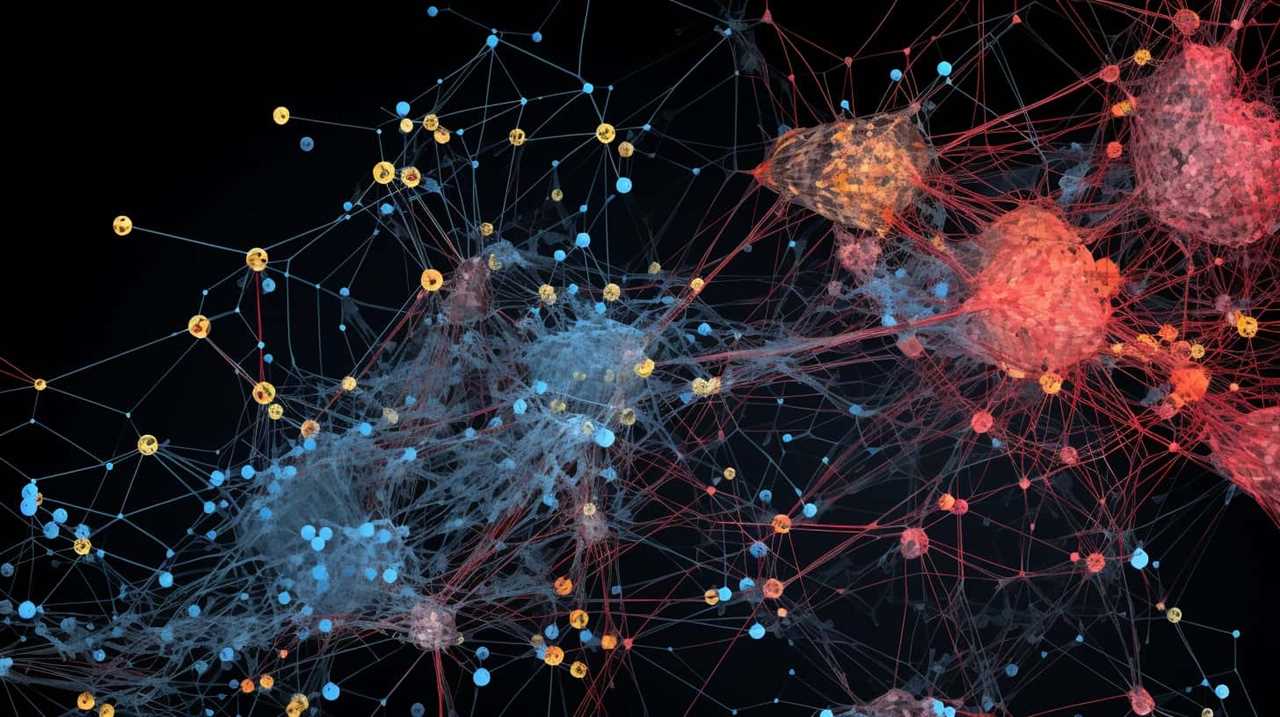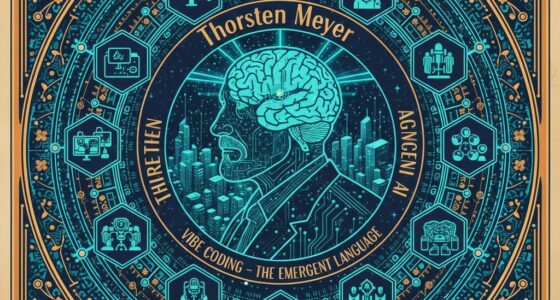In the field of artificial intelligence, the concept of machines replacing human capabilities has sparked curiosity and concern. As we explore the complexities of integrating AI into various sectors, questions arise about the extent to which machines can replicate human tasks.
The comprehensive guide on 'How AI Can Replace Humans' meticulously dissects this intricate relationship, shedding light on the evolving dynamics between artificial and human intelligence. It explores not only the potential disruptions in the job market but also the nuanced interplay between automation and human expertise.
This guide serves as a compass in the uncharted territory of AI's advancements, paving the way for a thought-provoking dialogue on the future landscape of human-machine collaboration.
Key Takeaways
- AI excels in automating tasks like resume screening and decision-making based on rules.
- Human oversight is crucial to ensure correct and ethical AI functioning.
- AI streamlines operations, increasing productivity with human monitoring.
- Balancing automation and human input is vital for effective AI utilization.
Impact of AI on Job Market
The rapid advancement of artificial intelligence (AI) technology is significantly reshaping the job market landscape, with projections indicating that 85 million jobs worldwide may be replaced by AI by 2025. This impending transformation will have a profound impact on various industries, leading to disruptions that necessitate adaptation and upskilling among the workforce.
Specific occupations such as customer service representatives, drivers, programmers, research analysts, and paralegals are at risk of being replaced by AI due to the automation of tasks they perform.
However, jobs that involve complex tasks requiring human interaction, like teaching, nursing, therapy, and skilled trades, are less susceptible to being overtaken by AI. While AI excels at automating tasks such as resume screening for HR specialists, it lacks the emotional intelligence and sensitivity crucial for roles involving significant personal interactions. Professions demanding creativity and innovation, such as writers and artists, are also less likely to be entirely replaced by AI due to the current limitations of artificial intelligence in these areas.
As AI continues to evolve, understanding its impact on the job market is essential for individuals and industries to navigate these changes effectively.
Automation Vs. Human Input

As the influence of artificial intelligence (AI) continues to expand across various industries, the debate over the balance between automation and human input intensifies. AI algorithms excel at automating repetitive tasks and making decisions based on predefined rules, which can lead to increased efficiency and consistency compared to human performance. AI's ability to handle large volumes of data and process information at high speeds positions it as a potential replacement for humans in tasks such as data entry, customer support, and driving vehicles through automation.
However, human input remains indispensable in the setup and monitoring of AI systems. Human oversight is essential to ensure that AI functions correctly, ethically, and in alignment with organizational goals. While AI can streamline operations and increase productivity, it is crucial for humans to supervise and intervene when necessary. The efficiency and reliability of AI make it a valuable tool for augmenting human capabilities rather than completely replacing human workers in various industries. Monitoring AI systems and providing human input are vital aspects of leveraging automation in AI effectively.
Challenges in AI Implementation
Navigating the complexities of AI implementation presents a myriad of challenges that organizations must address with precision and foresight. When delving into AI implementation, several key challenges arise:
- Data Quality Issues: The effectiveness of AI is heavily reliant on the quality of the data it is trained on. Ensuring accurate, unbiased, and relevant data is crucial for AI systems to perform optimally.
- Lack of True Creativity and Innovation: AI currently struggles to exhibit true creativity and innovation, which are innate human qualities. This limitation hinders AI from generating truly novel ideas and solutions.
- Empathy and Emotional Intelligence: AI's deficiency in empathy and emotional intelligence restricts its capacity to fully understand and engage in human emotions. This shortfall poses challenges in applications where emotional understanding is paramount.
- Human Oversight and Involvement: Human oversight is indispensable for the proper functioning of AI systems. Human input is essential to guide, monitor, and intervene in AI processes, emphasizing the critical role of human involvement in AI implementation.
Ethical Considerations in AI

Addressing ethical considerations in AI implementation necessitates a comprehensive framework that upholds fairness, transparency, and accountability in decision-making processes. As AI tools become more integrated into various aspects of society, ensuring that these systems do not perpetuate bias or discrimination is paramount. The use of new data in AI processes can sometimes lead to unintended consequences, making it crucial to establish ethical guidelines to govern the development and deployment of AI technologies.
Ethical considerations also extend to the realm of data privacy and security, particularly concerning the collection and analysis of personal information by AI systems. Responsible AI deployment requires proactive measures to safeguard individuals' privacy rights and prevent unauthorized access to sensitive data. By promoting ethical AI frameworks, organizations can mitigate the risks associated with biased algorithms and work towards creating more inclusive and equitable AI solutions that benefit society as a whole.
Collaboration among diverse stakeholders is essential in shaping the future of AI towards a more ethical and responsible direction.
Future Prospects of Human-AI Collaboration
In contemplating the future prospects of human-AI collaboration, the evolving landscape of technological integration presents opportunities for unprecedented advancements in productivity and innovation.
- Efficient Collaboration: Human-AI collaboration is poised to streamline processes, leading to more efficient workflows and resource utilization.
- Innovative Solutions: The combination of human creativity and AI capabilities can spark innovative solutions that may not be achievable by either alone.
- Enhanced Decision-making: AI's ability to process vast amounts of data can assist humans in making informed decisions, thereby improving overall decision-making processes.
- Focus on Strategic Initiatives: By automating repetitive tasks, AI allows humans to redirect their focus towards strategic initiatives that require critical thinking and creativity, ultimately driving progress and growth.
The symbiotic relationship between humans and AI holds the promise of revolutionizing industries by harnessing the strengths of both parties. This collaboration is not about replacing humans but rather augmenting their abilities to achieve groundbreaking advancements in various fields.
Frequently Asked Questions
Will a Person Using AI Replace You?
While AI technology can replace individuals in certain tasks, it is unlikely to entirely replace a person as a whole. Human qualities like creativity, emotional intelligence, and critical thinking remain essential in roles that require complex decision-making and nuanced understanding.
How AI Is Changing Human Life?
AI is revolutionizing human life by enabling self-driving cars, virtual personal assistants, and personalized treatment plans in healthcare. It is changing how we work through streamlined processes and enhanced productivity, and impacting education with personalized learning systems and virtual classrooms.
What Jobs Will Not Be Replaced by Ai?
Professions demanding high levels of empathy, creativity, and interpersonal skills, like teachers, caregivers, therapists, and creative professionals, are less susceptible to AI replacement. Jobs requiring emotional intelligence, intuition, and nuanced communication are unlikely to be fully automated.
What Can AI Do That Humans Cannot?
AI can process vast amounts of data at incredible speeds, excel in repetitive tasks without fatigue, perform complex calculations with precision, operate continuously, adapt quickly to new information, and learn rapidly. These capabilities surpass human abilities in these specific areas.
Conclusion
In conclusion, the rise of AI presents both opportunities and challenges in the job market. While automation threatens certain roles, the collaboration between humans and AI can lead to innovation and progress.
Ethical considerations must guide the implementation of AI to ensure fair and responsible use. As we navigate this evolving landscape, it is crucial for individuals to adapt and upskill to thrive in the era of artificial intelligence.
Remember, 'every cloud has a silver lining.' 'Every cloud has a silver lining, and with the right mindset and skills, we can harness the power of artificial intelligence for the greater good.'









